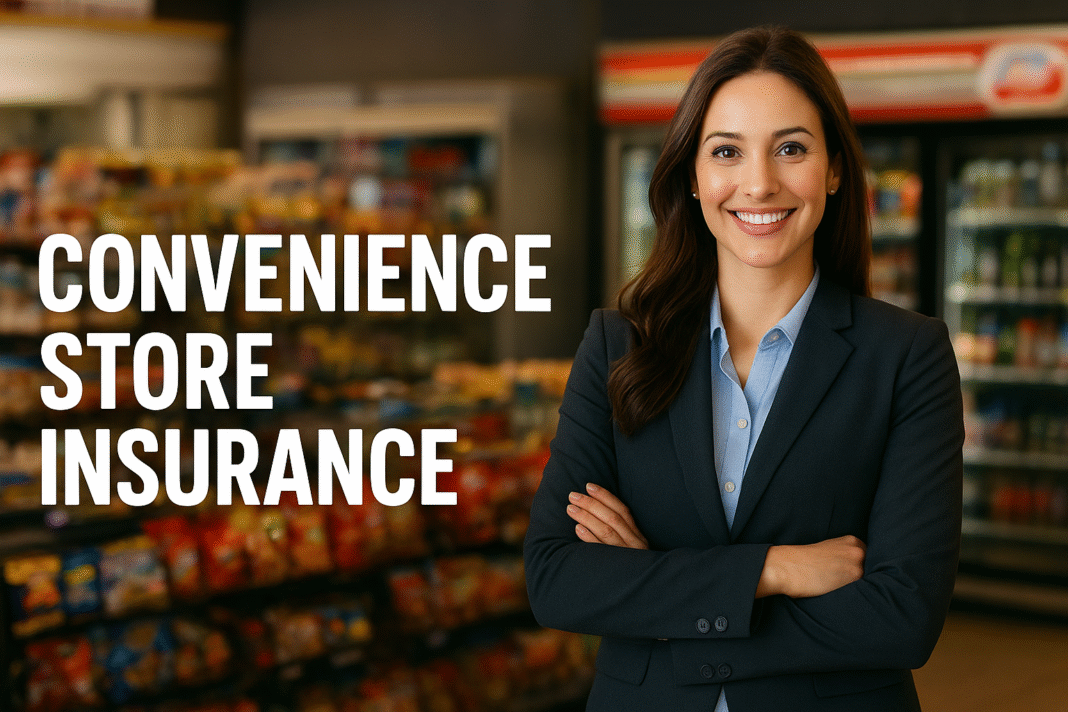I personally tried convenience store insurance for my small business. Here’s my honest review—what it covers, how much it costs, and how to choose the best policy for your store.
Introduction: Why I Needed Convenience Store Insurance
Running a convenience store isn’t easy. From unpredictable customers to long hours and tight margins, every day brings something new—and not always in a good way. When I first opened my store, I honestly underestimated the importance of convenience store insurance.
One night, a minor fire in the back room changed everything. Thankfully, I already had coverage in place, but it made me realize how insurance isn’t just a legal formality—it’s survival protection.
In this article, I’ll share what I’ve learned firsthand about convenience store insurance—what it covers, how it works, what to look out for, and how to avoid paying too much.
What Is Convenience Store Insurance?
Convenience store insurance is a specialized policy designed to protect small retail businesses from financial losses caused by accidents, theft, property damage, and liability claims.
Unlike basic business insurance, this coverage is customized for the unique risks that convenience stores face daily—like shoplifting, food spoilage, or customer injuries.
Why I Chose to Get It (My Experience)
When I first opened my convenience store, I thought a basic general liability policy was enough. Then, within my first year:
- A freezer malfunctioned overnight, ruining over $3,000 worth of perishable products.
- A customer slipped on a wet floor and filed a claim for medical expenses.
- A delivery truck accidentally backed into my front sign, damaging property.
Those incidents opened my eyes. Without comprehensive convenience store insurance, I would’ve paid thousands out of pocket.
That’s when I decided to sit down with a commercial insurance agent who helped me build a policy tailored to my business.
What Does Convenience Store Insurance Cover?
Based on my policy and industry standards, here’s what most convenience store insurance packages include:
1. General Liability Insurance
Covers third-party injuries, property damage, and legal costs.
👉 Example: If a customer slips on spilled soda and breaks their wrist, liability coverage pays medical bills and legal fees.
2. Commercial Property Insurance
Protects your building, equipment, and inventory from damage caused by fire, theft, or vandalism.
👉 My fire claim fell under this—thankfully, it covered the cost of repairs and lost stock.
3. Business Interruption Insurance
Reimburses you for lost income if your store has to close temporarily after a covered event.
4. Product Liability Insurance
Protects you if a product you sell causes harm or illness.
👉 If spoiled milk makes a customer sick, this coverage can save you from lawsuits.
5. Workers’ Compensation Insurance
Required in most states—covers medical expenses and lost wages for injured employees.
6. Commercial Auto Insurance
If your store uses vehicles for deliveries or supply pickups, this policy covers accidents and damage.
7. Crime & Theft Coverage
Shields you from losses caused by burglary, employee theft, or shoplifting.
8. Equipment Breakdown Insurance
Pays for repairs or replacement of vital machines like coolers, freezers, or POS systems.
How Much Does Convenience Store Insurance Cost? (My Actual Costs)
Based on my personal experience and research, here’s a rough breakdown:
| Type of Coverage | Monthly Cost | Annual Estimate |
|---|---|---|
| General Liability | $60 – $120 | $720 – $1,400 |
| Property Insurance | $80 – $150 | $1,000 – $1,800 |
| Workers’ Comp | $100 – $250 | $1,200 – $3,000 |
| Business Interruption | $40 – $100 | $500 – $1,200 |
| Crime/Theft Coverage | $50 – $120 | $600 – $1,400 |
➡️ Total Monthly Range: $300–$600
➡️ Average Annual Cost: $3,600–$7,000
Of course, rates vary depending on:
- Location (urban vs rural)
- Store size and inventory value
- Number of employees
- Past claims history
My Personal Review of Convenience Store Insurance
Here’s my honest breakdown after several years:
✅ What I Liked
- Peace of Mind: Knowing I’m protected from financial disaster.
- Responsive Claims Handling: My insurer processed fire-related claims fast.
- Comprehensive Coverage: My customized policy handled all my business needs.
❌ What Could Be Better
- Premiums can get high if you’ve had previous claims.
- Not all insurers understand the unique risks of small convenience stores.
- You need to read every detail—exclusions can surprise you.
Overall, though, my experience has been very positive. I’d rate my convenience store insurance coverage a 9/10 for reliability and peace of mind.
Tips from My Experience for Choosing the Best Policy
- Work with an agent who specializes in retail insurance.
They’ll understand your store’s unique needs better than a general agent. - Bundle policies.
Combining property, liability, and workers’ comp can save up to 15–20%. - Review coverage yearly.
Your inventory value and risks change—so should your coverage. - Install safety features.
Adding cameras, alarms, and anti-slip mats can help lower premiums. - Document everything.
Take photos and keep receipts for equipment—this speeds up claim approvals.
Common Exclusions You Should Know About
Even good policies have limits. Here are a few surprises I learned the hard way:
- Flood damage isn’t covered unless you buy a separate policy.
- Employee dishonesty may require an added endorsement.
- Wear and tear (like old coolers breaking down) isn’t covered unless sudden.
Why Convenience Store Insurance Is Worth It (In My Opinion)
After experiencing both an insured and uninsured loss, I can confidently say:
“Insurance isn’t an expense—it’s a business survival tool.”
That one fire could have shut my store down for good. Instead, I was able to rebuild, reopen, and recover faster than I expected.
So if you own a convenience store, I’d highly recommend investing in comprehensive coverage tailored to your operation.
FAQs About Convenience Store Insurance
1. Is convenience store insurance mandatory?
While not all coverages are required, general liability and workers’ comp are mandatory in most states.
2. How can I lower my insurance premium?
Bundle your policies, improve security, and maintain a good claims record.
3. Does convenience store insurance cover theft?
Yes—most include crime coverage for burglary and employee theft.
4. What if my store sells alcohol or tobacco?
You’ll need specific liability add-ons to comply with local laws.
5. Can I get coverage if I operate 24/7?
Yes, but premiums might be slightly higher due to increased risk.
6. What happens if my business shuts down temporarily?
Business interruption coverage will pay for lost income and ongoing expenses.
Conclusion: My Final Take on Convenience Store Insurance
After years of running my own store, I can confidently say that convenience store insurance is a must-have for any serious business owner. It’s not just about meeting regulations—it’s about protecting your livelihood.
Whether you’re a small local shop or part of a franchise, a tailored insurance policy gives you peace of mind so you can focus on serving your customers.
If you haven’t reviewed your policy recently, I’d recommend talking to a professional who understands business insurance for convenience stores. Trust me—it’s one of the smartest investments you’ll ever make.
(This experience was shared by one of our community members. You’re also welcome to share your own experience — just send it to us by email or through our Contact Us page, and we may publish it to help others benefit from your insight.)









